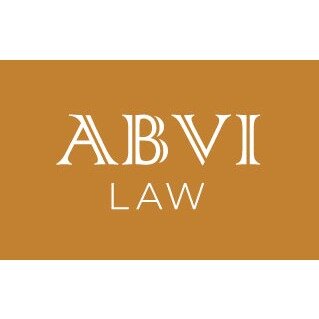Best Natural Resources Lawyers in British Virgin Islands
Share your needs with us, get contacted by law firms.
Free. Takes 2 min.
Or refine your search by selecting a city:
List of the best lawyers in British Virgin Islands
About Natural Resources Law in British Virgin Islands
The British Virgin Islands (BVI) is a British Overseas Territory located in the Caribbean, renowned for its stunning natural landscape that includes pristine beaches, lush forests, and rich marine life. The natural resources of BVI are a significant part of its allure and economic foundation, particularly through tourism, fisheries, and agriculture. As such, BVI places a high emphasis on the sustainable management and protection of its natural resources. The legal framework governing natural resources seeks to balance development and conservation, ensuring that the exploitation of these resources does not compromise the islands’ ecological integrity.
Why You May Need a Lawyer
There are numerous scenarios in which an individual or business might require legal assistance in matters related to natural resources in BVI. Some of the most common situations include:
- Advising businesses or developers on compliance with environmental regulations during construction projects.
- Assisting with the acquisition of permits and licenses required for natural resource exploitation, such as fishing licenses or permits for mineral extraction.
- Resolving disputes over land use, particularly in areas designated for preservation or protected status.
- Guiding investors or businesses in navigating legal restrictions or obligations regarding resource extraction and land development.
- Providing representation in cases of environmental harm or violations of natural resource laws.
Local Laws Overview
The legal landscape of natural resources in the British Virgin Islands is shaped by several key statutes and regulatory frameworks, including:
- The Fisheries Act: This Act governs the management and conservation of marine resources, emphasizing sustainable fishing practices and establishing marine protected areas.
- The National Parks Act: This legislation designates and regulates protected areas to conserve BVI’s natural heritage and biodiversity.
- The Physical Planning Act: This Act outlines requirements for land use planning, ensuring that development projects do not adversely affect the environment and natural resources.
- The Environmental Protection and Tourism Improvement Act: This Act was established to enforce environmental quality and protect ecosystems, which are vital for tourism and local communities.
Frequently Asked Questions
What are the main natural resources in the British Virgin Islands?
The BVI’s natural resources include marine life, beaches, forests, and land suitable for agriculture. The territory’s economy also significantly benefits from its natural landscapes that fuel tourism.
What role do natural resources play in BVI’s economy?
Natural resources in BVI are crucial for tourism, which is a significant driver of the economy. Fisheries and agriculture also play a role, although to a lesser extent compared to tourism.
How is land use regulated in the British Virgin Islands?
Land use in BVI is regulated primarily under the Physical Planning Act, which requires permits and assessments to ensure land development is in line with sustainable practices.
Are there protected areas in the BVI?
Yes, BVI has designated several protected areas, including national parks and marine sanctuaries, to safeguard its natural ecosystems and biodiversity.
What permits are required for marine activities in BVI?
Marine activities often require permits under the Fisheries Act, especially when it involves fishing or any commercial use of marine resources.
Is it possible to commercially exploit natural resources in BVI?
Commercial exploitation is possible but heavily regulated. Businesses must comply with local laws, obtain necessary permits, and ensure activities do not harm the environment.
What penalties exist for violating natural resource laws in BVI?
Penalties vary but may include fines, restoration orders, or imprisonment, depending on the severity of the violation and harm caused to the environment.
How can I find out if a piece of land is protected?
Consult the National Parks Act or contact the Town and Country Planning Department for information about land status and potential restrictions for development.
Can foreign companies engage in resource extraction in BVI?
Yes, but they must adhere to all local laws and regulations, obtain appropriate licensing, and often need to demonstrate how they will mitigate environmental impacts.
Who oversees environmental protection in BVI?
The Department of Conservation and Fisheries, along with other governmental bodies like the Ministry of Natural Resources, are responsible for enforcing environmental protections.
Additional Resources
For those seeking further information or assistance, consider reaching out to the following resources in BVI:
- Department of Conservation and Fisheries: Offers guidance and regulatory information on marine and terrestrial resources.
- Ministry of Natural Resources, Labour, and Immigration: Provides oversight and support on matters related to natural resources.
- Town and Country Planning Department: Can assist with land use queries and compliance checks.
- Environmental Agency of BVI: A resource for understanding environmental legislation and initiatives.
Next Steps
If you find yourself in need of legal assistance regarding natural resources in BVI, consider the following steps:
- Identify the specific legal issue or inquiry you have related to natural resources.
- Contact a law firm specializing in environmental or natural resources law in BVI to obtain professional advice.
- Gather and organize any relevant documents or information that might support your consultation with a legal expert.
- Consider reaching out to local government bodies or agencies for any initial guidance or resources they can provide.
- Ensure compliance with all local laws by consulting with experts, which can prevent potential legal conflicts or penalties in the future.
Lawzana helps you find the best lawyers and law firms in British Virgin Islands through a curated and pre-screened list of qualified legal professionals. Our platform offers rankings and detailed profiles of attorneys and law firms, allowing you to compare based on practice areas, including Natural Resources, experience, and client feedback.
Each profile includes a description of the firm's areas of practice, client reviews, team members and partners, year of establishment, spoken languages, office locations, contact information, social media presence, and any published articles or resources. Most firms on our platform speak English and are experienced in both local and international legal matters.
Get a quote from top-rated law firms in British Virgin Islands — quickly, securely, and without unnecessary hassle.
Disclaimer:
The information provided on this page is for general informational purposes only and does not constitute legal advice. While we strive to ensure the accuracy and relevance of the content, legal information may change over time, and interpretations of the law can vary. You should always consult with a qualified legal professional for advice specific to your situation.
We disclaim all liability for actions taken or not taken based on the content of this page. If you believe any information is incorrect or outdated, please contact us, and we will review and update it where appropriate.
Browse natural resources law firms by city in British Virgin Islands
Refine your search by selecting a city.














